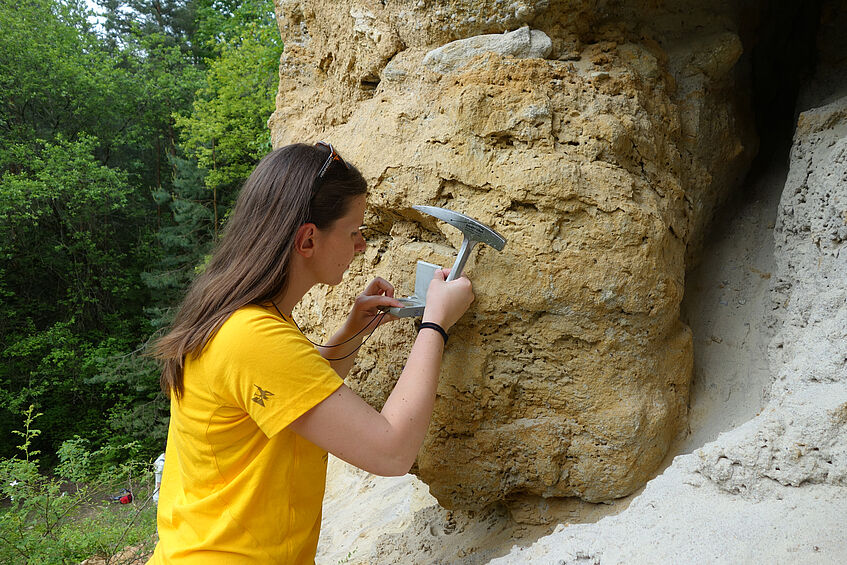Earth Sciences (Bachelor)

© Annalena Erlacher
The bachelor’s programme in Earth Sciences conveys basic knowledge from all areas of earth sciences. It enhances the students’ in-depth understanding of physical, chemical and biological processes that have been taking place in the mantle, crust, hydrosphere, pedosphere, atmosphere and biosphere of the earth since its formation. In addition, it imparts knowledge regarding applied earth sciences, such as the exploration of raw materials, mineralogy and materials science and an environmental geosciences view of natural hazards and water resources. Graduates have the necessary skills to carry out observations and measurements on site, analyse them in the laboratory and analyse the collected data.
Bachelor of Science
Degree Programme Code: 033 615
6 semesters / 180 ECTS credits
Language: German
NO entrance examination
Facts & Figures
- Students: n.a.
- Graduates in the last academic year: n.a.
- Number of semesters needed for graduation (median): n.a.
Data updated on: 03.12.2024
Attention
Instruction Language German
Please note that the instruction language of this programme is German. To start the degree programme, you need to hold a certificate of German proficiency on C1 level.
Study programme
The bachelor’s programme in Earth Sciences consists of an Introductory and Orientation Period covering the areas of the Earth system, mineralogy and crystallography and general and inorganic chemistry, compulsory modules from subdisciplines such as mineralogy, biology, rock identification, cartography, mathematics, chemistry and palaeontology, as well as elective modules. To successfully complete the programme, students have to write a bachelor’s thesis.
Five concepts
which you will deal with during your studies:
- Crystallography
- Palaeobiodiversity
- Stratigraphy
- Tectonics
- Geological mapping
... and many more.
Overview of the programme structure & topics
Here you find the current offer of courses for this programme to gain better insight into the topics and structure. For more information please click on the respective level.
After Graduation
With their comprehensive education, graduates of the bachelor’s programme in Earth Sciences are qualified to work in occupational fields that require basic competences in earth sciences, such as:
- the raw materials industry
- construction and civil engineering offices
- water management, as well as
- public authorities and museums.
Graduates' Perspective on the Degree Programme
Graduates ...
- say that this degree programme receives the grade: 2.1 (good)
- rate the level of difficulty as: 3.5 (appropriate)
→ These results are basd on feedback from 46 graduates.
*You can find further assessments of the degree programme from its graduates’ perspective in the graduate survey of the bachelor’s programme in Earth Sciences graduation survey (in German).
Graduates ...
- find employment within 3 months after graduation on average.
- earn an average of € 2,751 (women) and € 3,203 (men) gross per month within three years after graduation.
- work full time at a percentage of 70% (women) and 76% (men) within three years after graduation.
*You can find further information on career entry and career paths in the tracking of graduates "Natural Sciences, Mathematics and Statistics".

